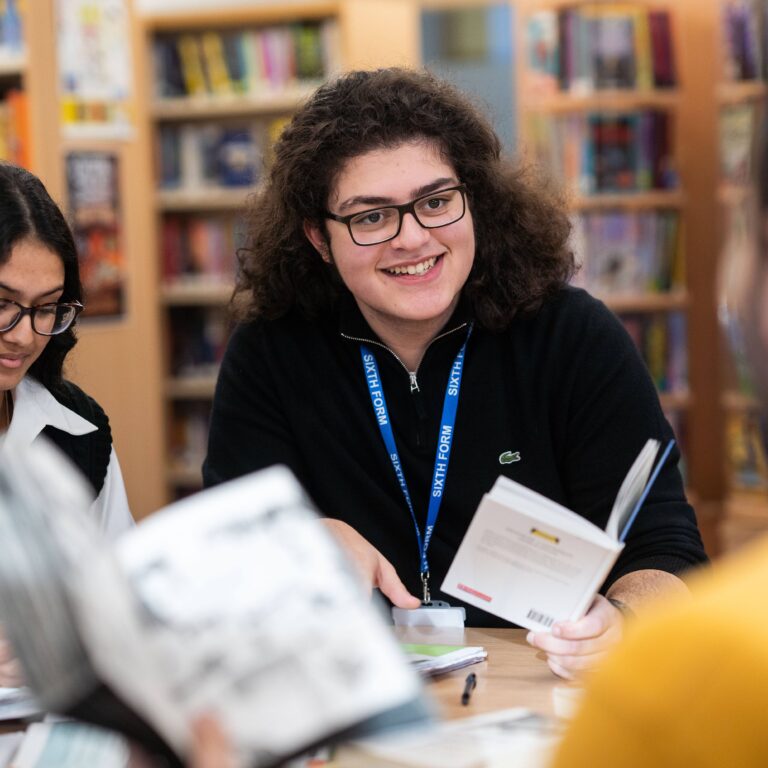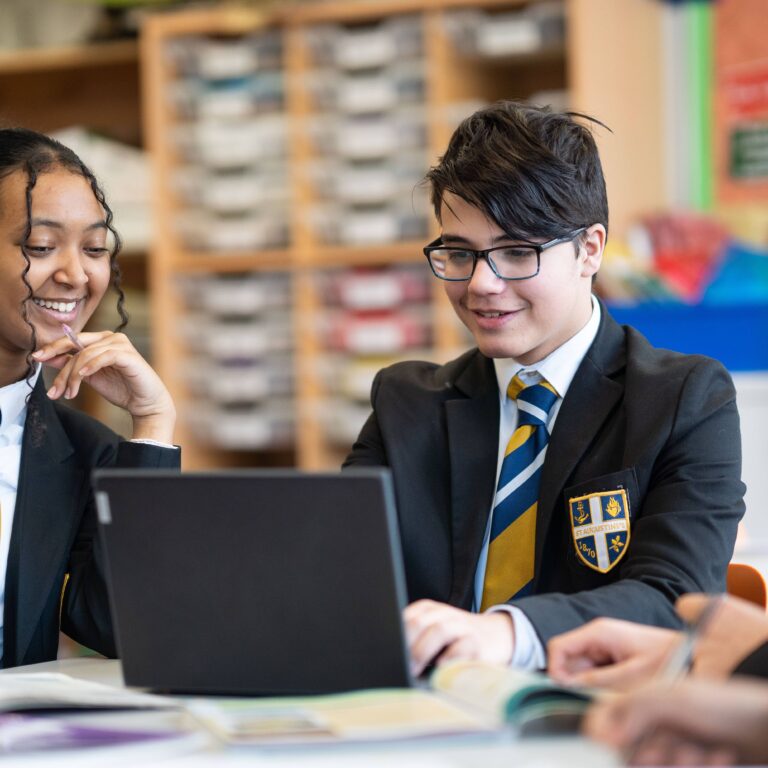Welcome to St Augustine’s SEND department
At St Augustine’s Special Educational Needs Department, all our students have equal opportunities to enjoy learning, develop holistically and to “Be the best they can be”. Inclusion is at the very heart of our school values and is central to the well-being, development and success of our students with SEND.
The SEN department is a diverse and enthusiastic team with a range of dedicated and qualified professionals. The SEN department works in partnership with external agencies to meet the needs of all students, including; ASD outreach teachers, Visual impairment specialist teachers, Occupational Therapist, Speech and Language Therapist and Educational Psychologists. We let the uniqueness of the students guide our work.
As a SEND provision we follow and support the school’s curriculum which is underpinned by the National Curriculum. We aim to ensure it is fully accessible to all SEND children, encompasses the full range of subjects and activities which are appropriately differentiated to meet the individual needs of each SEND child, and support the development of knowledge and abilities.
Students are provided with individualised programmes of support which could include in and out of class support, small group classes or individual support from a teacher or learning support assistant. Students can also access academic, pastoral and social support through our lunch and after school clubs. We strive to ensure that all the necessary needs and views of the students are taken into an account.
Furthermore, any additional support and information about services that children, young people and their families can access in the Westminster can be found at Westminster’s Local Offer link.
The SEND department at St. Augustine’s consist of the Head of Student Support Services, Assistant SENCO (SEN English teacher), Assistant SENCO (Maths Teacher), Learning Support Assistants, Physiotherapist, Speech and Language therapist. Working closely with the Pastoral team, St Augustine’s CE High School will adopt a graduated response to meeting special educational needs.
For further information, please refer to the SEN policy or contact the Head of Student Support Services, Sanja Semic ssemic@stahigh.org
Provision
At St Augustine’s we are proud to accommodate students with a range of special needs varying from specific learning, social, emotional and mental health difficulties to Autistic Spectrum disorder, physical impairments and students with other complex needs. Currently our provision assists many students identified as needing additional or different provision support through SEND and other external support services provided by the LA and/or other agencies.
Students with special needs, or those who may require additional support are identified through a number of ways including school’s assessments, teachers’ observations, Speech and Language screens, students’ and parental / carers concerns and external agencies referrals and involvement. Our SEN team will then draw the best course of action in order to ensure effective and productive academic support. St. Augustine’s CE High School follows the latest (Code of Practice) published by the government.
Transition
As soon as we know that students with SEND will definitely be attending our school, we start finding out more about them. This allows for preparatory planning of their needs and ensures that they settle happily into our school. St Augustine’s works closely with primary schools or other educational settings and our Head of Student Support and Assistant SENCOs will attend prospective students’ Annual Review meetings when possible. Furthermore, our transition team runs 6-week Transition group programme, which allows the school to further get to know the students and help students make a positive and smooth transfer from primary to secondary school. St. Augustine’s strongly encourages parent/carers of students with an EHCP, and primary SENCo/Key Workers to visit the school or contact our Head of Student Support Services or transition officer before naming the school.
Head of Student Support Services: ssemic@stahigh.org
Transition officer: jbrady@stahigh.org
Garden
Our school garden was established in spring 2019, and offers our students with SEN the opportunity to explore the importance of sustainable relationships between people and the environment as well as the enhancement of skills such as problem solving, team work, communication and leadership. We believe all students have their own uniqueness and gifts and through opportunity and exploration we can help them find their individual strengths and valued place amongst society. The project supports and enhances the curriculum whilst implementing an eco-friendly and sustainable mindset. We’ve been lucky enough to be sponsored by Telford Homes and many other individual donators of materials and plants. We also have a close relationship with the RHS and we are currently taking part in the Green Plant It Garden competition. Our students take part in gardening which promotes positive attitude to horticulture as an interesting and enjoyable subject and to develop awareness of how horticulture is a life skill that can impact everyday life as a method of relaxation and aiding mental health and well-being.
Sensory room
St Augustine’s we are very proud to have a sensory room as a part of our provision, and it proves to be a vital part of our daily support programme. The sensory room acts as a calming space for pupils experiencing emotional or behavioural difficulties. Schools can be noisy, busy places and for some, the sheer volume of stimuli can become be an overwhelming and challenging place. Therefore, our sensory room is a practical and effective way to provide a calming, safe and quiet space for pupils with Autism, students with other special educational needs or those who just need a place to ‘breathe’. It can be an exciting and rousing, or calm and relaxing environment, depending on the young person’s needs. The décor of a sensory room includes muted colours, blankets, cushions, tip, an exercise bike and bubble tubes. It does contain a choice of comfortable places to sit, a variety of interesting objects to examine, and also features a sound speaker to play calming sounds and music. It also helps children learn to manage their emotions in a controlled environment, without feeling they are being isolated or punished.


